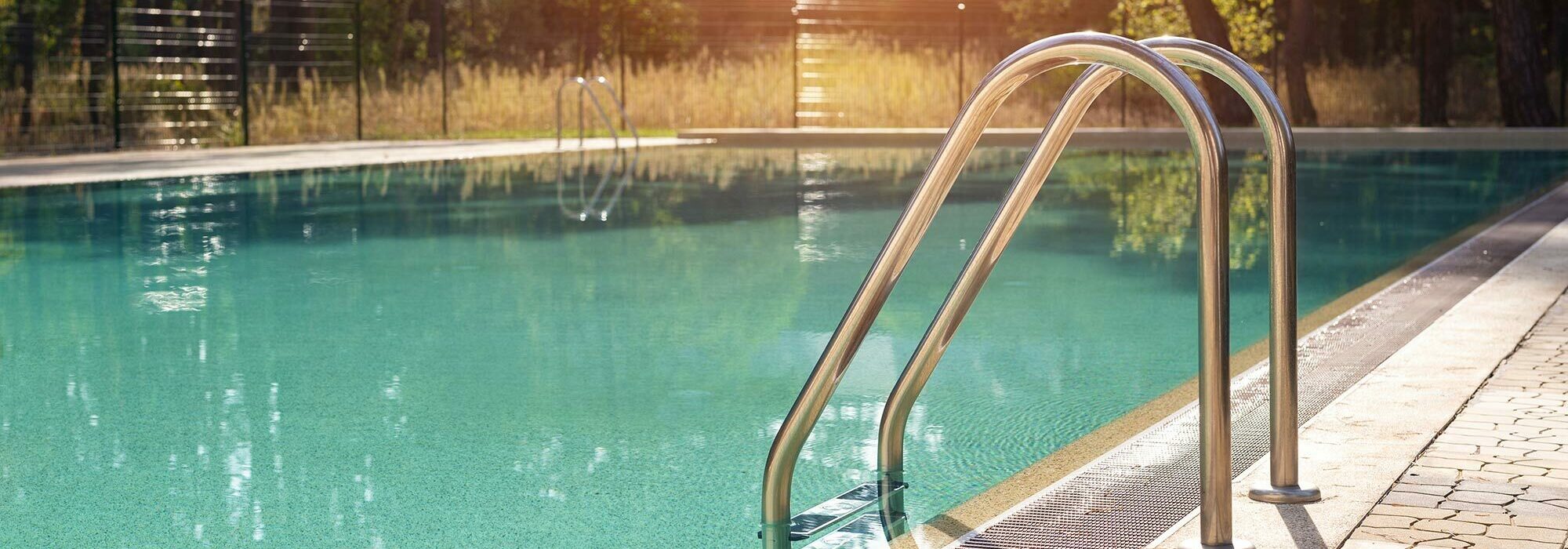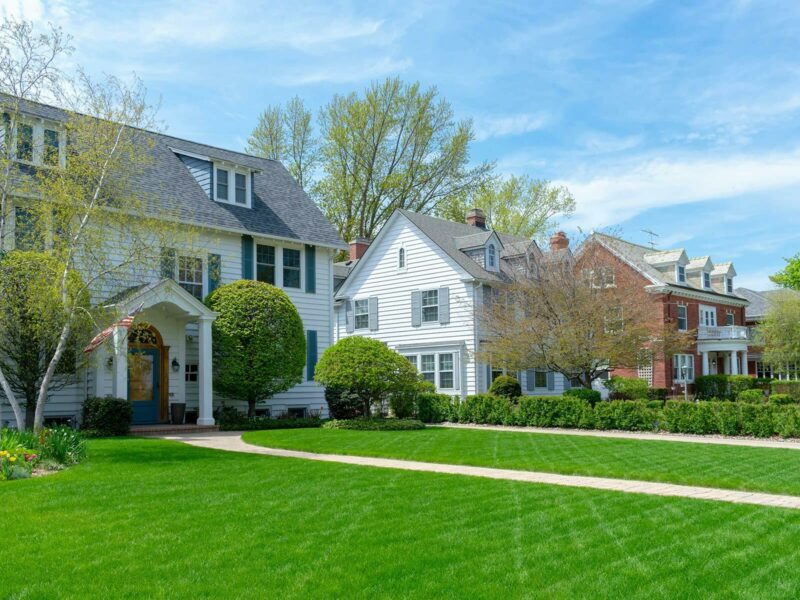Article Excerpt
See what makes concrete, fiberglass, and vinyl pool materials unique. How much do they cost, what do they look like, and what're the pros and cons?
Who doesn’t want a pool in their own backyard? It’s fun for all the neighborhood kids, parties, and you’ll definitely get at least part of its cost back when you sell the home. But not every pool is made the same. What makes pools different, and why does the cost vary? Let’s take a look.
Concrete
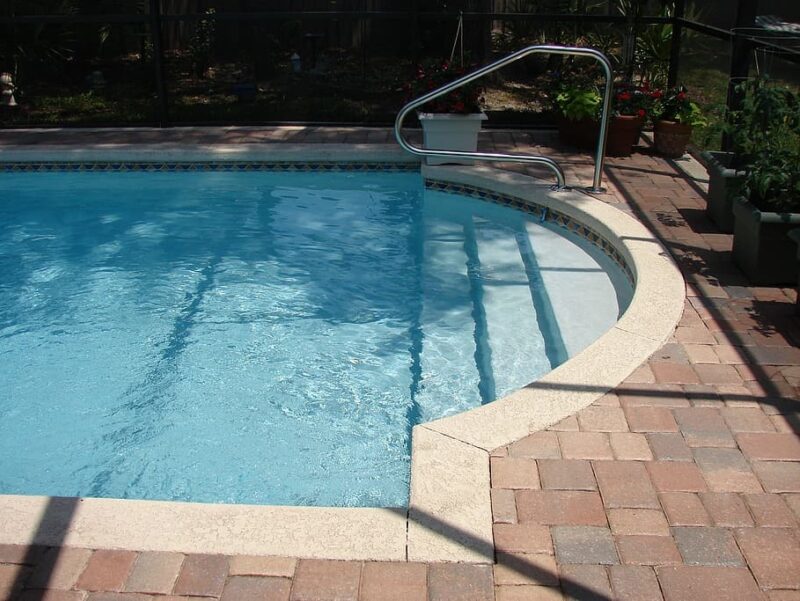
Concrete pools are in-ground. The shell is made by spraying either gunite or shotcrete. It takes about a month for it to completely dry and cure.
Concrete advantages
Concrete pools are generally thought of as the best-looking pools out there. They look expensive (because they are!) and can be finished with all kinds of custom materials: multi-colored tile, pebbles, and all kinds of stone. The shape of the pool isn’t limited by which molds your contractor offers, as concrete can be formed into any shape. Concrete pools fit in seamlessly with the rest of your yard. They’re built to last a long time with proper maintenance.
Concrete costs
The main downside of having a concrete pool is the cost.
Fixr.com estimated the minimum cost for an in-ground swimming pool will run your $29,000. They put the average cost at $60,000. But the increased costs don’t stop after installation.
Compared to other material options, concrete will be more expensive to maintain, too. $20,000+ may be required to maintain a large concrete pool over ten years. Basic concrete pool maintenance includes:
- Washing the shell
- Annual cleaning
- Re-tiling or re-plastering
- Pool liner replacements
- Chemical and electricity usage
Fiberglass
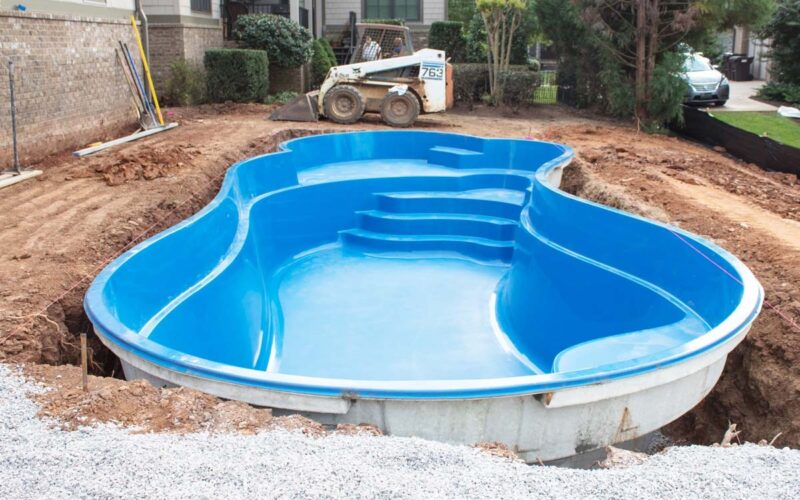
Image Credit: Leisure Pools
A fiberglass pool would arrive at your house ready already assembled. Although there are a variety of different shapes available, you’ll be limited to what your dealer can offer. Fiberglass is also limited by size.
Fiberglass is very durable and won’t scratch your feet like concrete can. The installation process is much quicker and easier than a concrete pool, too. And just like concrete, you can add personal touches to fiberglass with waterline tile and even tile mosaics on the bottom.
Fiberglass is naturally algae-resistant, but waterline stains can build up over time. They’re easily removed with pool cleaning solution. Maintenance is generally less expensive compared to concrete.
Fixr.com estimates in-ground fiberglass pools to cost an average of $50,000, with $35,000 on the low end.
Since fiberglass pools are assembled in one piece and shipped whole, the transportation costs can push up the price. Fiberglass pool owners definitely enjoy the low maintenance aspect though.
Vinyl
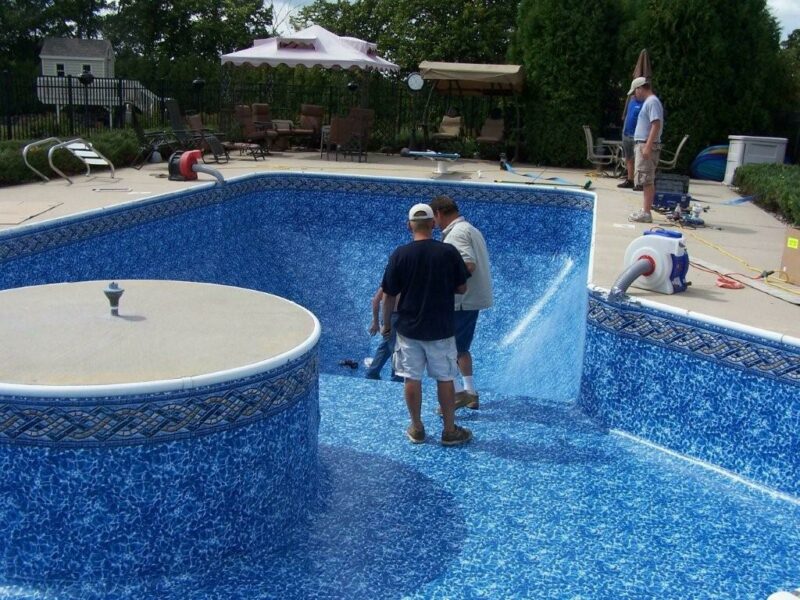
Image credit: Penguin Pools
Fixr.com estimates an average vinyl in-ground pool installation to run at $37,000, with $27,000 on the low end.
Vinyl pools come with the lowest initial cost. You don’t have to ship it all in one already-assembled piece. They’re also more durable to freeze and thaw cycles, so cracks from expansion and contraction aren’t a concern as they are with a concrete pool in a cold environment.
Due to needing liner replacement every five-to-ten years, vinyl pools come with a slightly higher maintenance cost over their lifetime compared to fiberglass. They’re also a little more susceptible to algae growth compared to fiberglass.
The downsides to vinyl are the durability and aesthetic. Tree limbs, dogs, and plastic pool toys can damage the liner easier than concrete or fiberglass. And while vinyl doesn’t look bad, it does feel a little cheaper than fiberglass, and a lot cheaper than concrete to the touch.
Want your own pool?
Whether you’re considering buying a new home or you want to finance a pool for your current home, we can help. Get started on your free pre-approval now, and an experienced local mortgage adviser will let you know about your options.
